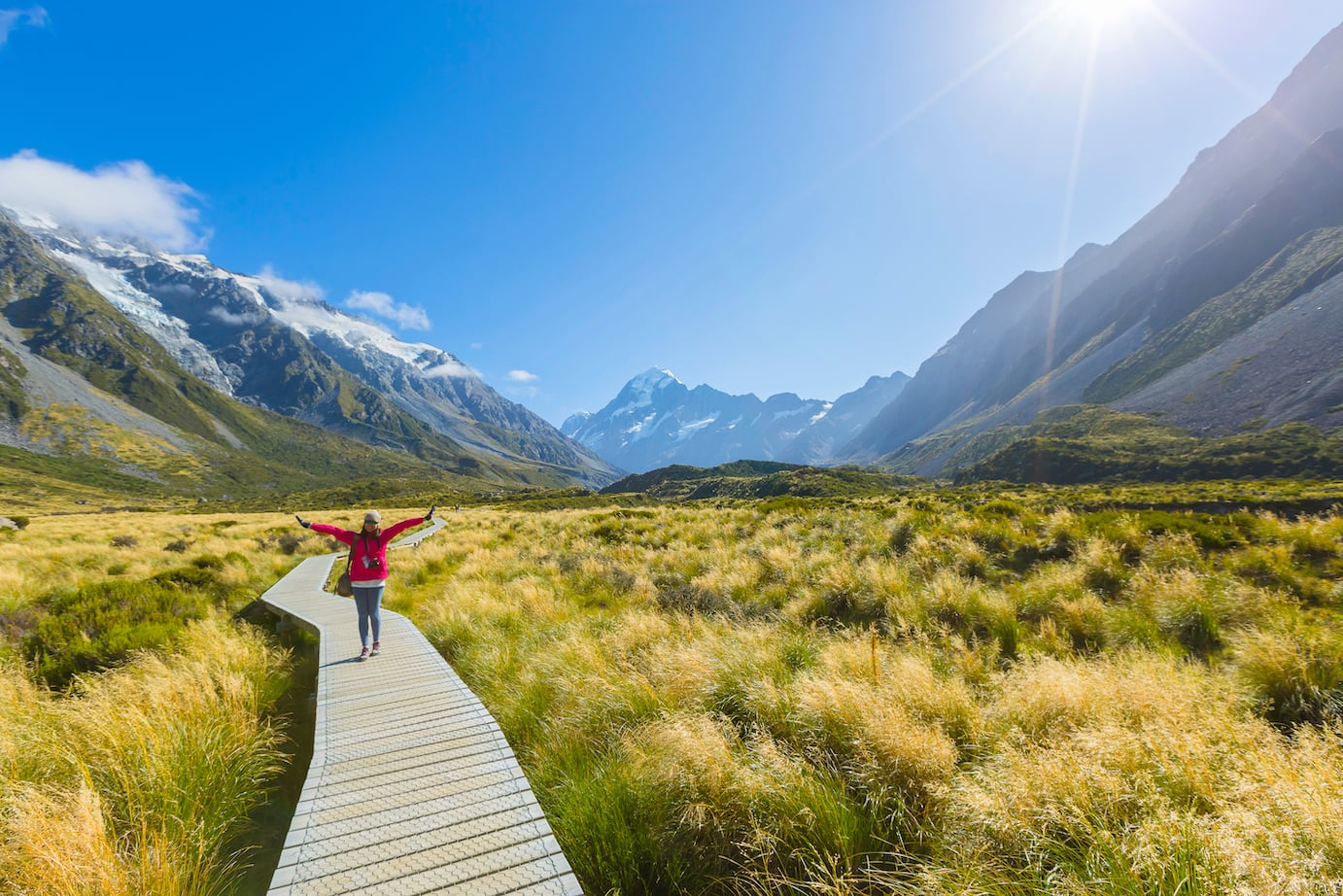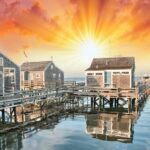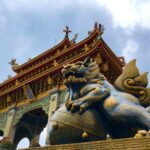Sure, it takes a long time to travel there, but New Zealand is one of the most breathtaking countries on Earth and definitely worth the trip. John Eric Home spoke with Meg Szulinski, an American expat who now lives at the bottom of the world, who shared her life and thoughts on this island nation.
JEH: As an expat living in New Zealand, what do you find most intriguing about the country?
MS: Being the home of bungee jumping, New Zealand has gained a reputation as an extreme adventure destination. Yet, they are also famous for their “Great Walks.” New Zealanders take walking to a whole new level. No matter where you are in the country, you are always close to amazing outdoor hikes for every ability and skill set. Literally getting out and seeing the country continues to intrigue me.
JEH: What was the easiest (aside from language) aspect for you to grip?
MS: New Zealand is an unbelievably safe country. With the possible exception of Auckland (it’s the largest city in the country), New Zealanders are known to leave their doors unlocked at night when they go sleep. Now, I don’t know if I’d go that far myself, but I do feel incredibly safe here. I never worry when my children are out and about.
JEH: What was the most challenging aspect to overcome?
MS: Driving on the “wrong side of the road!” I’d never driven on the left side of the road. Tourists have a terrible reputation in New Zealand for always causing road accidents. I was terrified of creating an international incident.
JEH: Can you speak a little on the culture of New Zealand?
MS: I would describe NZ as having three distinct cultures: the Māori (maʊri), Pakahi (pɑːkəhi), and Kiwi. The Māori is often the obvious cultural draw to NZ. This group of Pacifica arrived and colonized NZ before the Europeans ar rived. Theirs is a more spiritual connection to the land and a deeper link to the Pacific Island traditions. The Anglo-European settlers that came later are known locally today as Pakahi. The phrase refers to those specifically with strong Scottish and British roots. Finally, Kiwis are a blend of both Maori and Pakahi. It’s the unique blending of both histories to create their own new culture over time that exists today.
JEH: What do you like best about the country?
MS: New Zealanders have a strong sense of fairness. Corruption is not tolerated at all. It’s no surprise that the longest running NZ tv show (first aired in 1977) is called “Fair Go”, which focuses on calling to account NZ companies when they haven’t behaved in a responsible manner. This really speaks to the heart of New Zealanders. Afterall, it was the first country in the world to give women the right to vote. Fairness is ingrained in this country’s identity.
JEH: If a visitor came to New Zealand, what would be the top three sites or activities that they should see or do?
MS: 1. In Wellington you can’t miss Te Papa, the National Museum of New Zealand. It does an amazing job of encapsulating the history of this country, combined with art and culture. It’s like all of the Smithsonians thrown into one. It’s amazing!
2.Vistit the Fiordlands on the South Island. Skip Milford Sound and head to Doubtful Sound instead. Everyone goes to Milford. Its overrun with boats and tourists. Doubtful Sound has limited access which makes it less crowded but also much more relaxing. You see nature more up close in Doubtful Sound.
3.Take a bike / winery tour through Central Otago. It’s the best way to kill two birds with one stone. Otago is one of the many wine regions of NZ, boasting world-class Sauvignon Blanc and Pinot Noir. Bike tours give you the opportunity to get off the beaten track and experience some amazing trails through native bush.
JEH: What do you think would surprise our readers to know about New Zealand?
MS: New Zealanders don’t speak English. They speak Kiwi. Just like in the UK or Australia, there are many words that are uniquely Kiwi. Here are just a few examples: Chilly Bin = cooler, jandles = flip flops; togs = bathing suit; dairy =local small grocery shop; chippies = carpenters; sparkies = electricians.
JEH: Let’s focus on Wellington, now. What would you think was important to share with our readers about the city?
MS: There’s a reason Wellington is called “Best Little Capital!” Of course, I’m biased, but without a doubt it is a fun, funky, quirky capital. It’s easily walkable, has a vibrant micro-brew sub-culture, and doesn’t take itself too seriously. There’s a little something for everyone.
JEH: In Wellington, what are the top attractions?
MS: I’ve already mentioned Te Papa. That’s a must see! If you’re a Tolkein/Hobitt/Lord of the Rings fan, then a trip to the WETA Studios is a must! The famous saying in Wellington is “You can’t beat Welly on a good day!” It is notorious for its wind and rain, but not withstanding, if you are lucky enough to have good weather, then walking along the Oriental Parade to see the full beauty of the harbor is breathtaking. If you only have a short time in the city, then jump on the Cable Car and head up to the top to get a stunning view of the whole inlet. If it’s a good day, you might get lucky and see the South Island too. If you have more time, take a day trip to the Wairarapa region and enjoy some world class Sauvignon Blanc at the wineries.




JEH: Can you share with our readers one or two anecdotal stories about life in New Zealand?
MS: A popular expression used by everyone young and old is “Sweet as.” It’s equivalent to saying okay or no problem. Shortly after we moved here, my then seven-year-old son came home from school one day upset. When I asked what had happened, he informed me that someone had told him he had a cute bum. I burst out laughing, realizing that, due to the Kiwi accent, my son had heard “sweet ass” when it was intended as “sweet as.”
I was once requested to provide a small gift that would be put into “a hamper” at a prize giving event. In the States, if someone refers to a hamper, I would think they were talking about a dirty clothes hamper. Since that didn’t seem logical, I explained to the organizer my confusion and requested clarification. She broke out laughing and informed me it was a picnic basket.
JEH: Is there anything else that you might think of regarding traveling in New Zealand that might be of benefit to our readers?
MS: It takes longer to get between towns and cities. Unlike the States where everything is connected via highways and motorways, New Zealand has only two motorways in the whole country. Almost all roads are two lanes going through small towns. The magic of this is that you see the real New Zealand and, as they say here, you get a “tiki tour” of the country, taking the slow roads while seeing stunning scenery.



